Toronto Research Findings
***
What Freud has to do with auditory cheesecake, European opera and world peace.
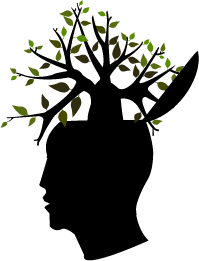 Last year, Horizon’s fascinating documentary on how music works was one of our most-liked pickings of 2010. But perhaps even more fascinating than the subject of how music works is the question of why it makes us feel the way it does. Today, we try to answer it with seven essential books that bridge music, emotion and cognition, peeling away at that tender intersection of where your brain ends and your soul begins.
Last year, Horizon’s fascinating documentary on how music works was one of our most-liked pickings of 2010. But perhaps even more fascinating than the subject of how music works is the question of why it makes us feel the way it does. Today, we try to answer it with seven essential books that bridge music, emotion and cognition, peeling away at that tender intersection of where your brain ends and your soul begins.
 MUSICOPHILIA
MUSICOPHILIA
 We love the work of neuroscientist and prolific author Oliver Sacks, whose latest book, The Mind’s Eye, was one of our favorite brain books last year. But some of his most compelling work has to do with the neuropscyhology of how music can transform our cognition, our behavior, and our very selves. InMusicophilia: Tales of Music and the Brain, Revised and Expanded Edition, Sacks explores the most extreme of these transformations and how simple harmonies can profoundly change lives. From clinical studies to examples from pop culture — did you know that Ray Charles believed he was “born with the music inside [him]“? — Sacks delivers a fascinating yet remarkably readable tale that tells the story, our story, of humanity as a truly “musical species.”
We love the work of neuroscientist and prolific author Oliver Sacks, whose latest book, The Mind’s Eye, was one of our favorite brain books last year. But some of his most compelling work has to do with the neuropscyhology of how music can transform our cognition, our behavior, and our very selves. InMusicophilia: Tales of Music and the Brain, Revised and Expanded Edition, Sacks explores the most extreme of these transformations and how simple harmonies can profoundly change lives. From clinical studies to examples from pop culture — did you know that Ray Charles believed he was “born with the music inside [him]“? — Sacks delivers a fascinating yet remarkably readable tale that tells the story, our story, of humanity as a truly “musical species.”
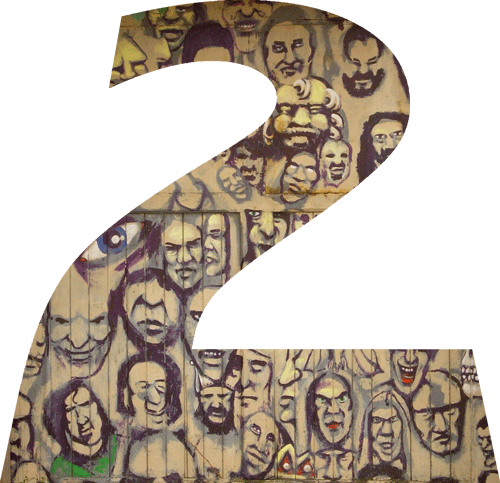 THIS IS YOUR BRAIN ON MUSIC
THIS IS YOUR BRAIN ON MUSIC
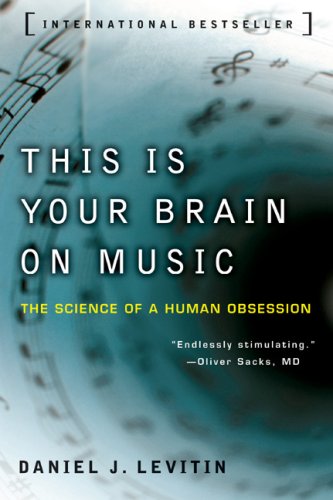 Why music makes us feel the way it does is on par with questions about the nature of divinity or the origin of love. In This Is Your Brain on Music: The Science of a Human Obsession, Daniel Levitin sets out to answer it — an ambitious task he tackles through a range of lenses, from a digestible explanation of key technical constructs like scale, tone and timbre to compelling cross-disciplinary reflections spanning neurobiology, philosophy, cognitive psychology, memory theory, behavioral science, Gestalt psychology and more. He illuminates diverse subjects like what accounts for the diversity of musical tastes and what makes a music expert, framing music processing as a fundamental cognitive function embedded in human nature. Most impressively, however, Levitin manages to do this while preserving the without subtracting from the intuitive, intangible magic of powerful music, dissecting its elements with the rigor of a researcher while preserving its magnetism with the tenderness of a music lover.
Why music makes us feel the way it does is on par with questions about the nature of divinity or the origin of love. In This Is Your Brain on Music: The Science of a Human Obsession, Daniel Levitin sets out to answer it — an ambitious task he tackles through a range of lenses, from a digestible explanation of key technical constructs like scale, tone and timbre to compelling cross-disciplinary reflections spanning neurobiology, philosophy, cognitive psychology, memory theory, behavioral science, Gestalt psychology and more. He illuminates diverse subjects like what accounts for the diversity of musical tastes and what makes a music expert, framing music processing as a fundamental cognitive function embedded in human nature. Most impressively, however, Levitin manages to do this while preserving the without subtracting from the intuitive, intangible magic of powerful music, dissecting its elements with the rigor of a researcher while preserving its magnetism with the tenderness of a music lover.
Never ones to pass up a good ol’ fashioned erudite throw-down, we can’t resist pointing out that the book’s final chapter, The Music Instinct, may be the juciest: It’s a direct response to Harvard psycholinguist Steven Pinker, who in a 1997 talk famously called music “auditory cheesecake” and dismissed it as evolutionarily useless, displacing demands from areas of the brain that should be handling more “important” functions like language. (Obviously, as much as we love Pinker, we think he’s dead wrong.) Levitin debunks this contention with a mighty arsenal of research across anthropology, history and cognitive science, alongside chuckle-worthy pop culture examples. (It’s safe to assume that it was musical talent, rather than any other, erm, evolutionary advantage, that helped Mick Jagger propagate his genes.)
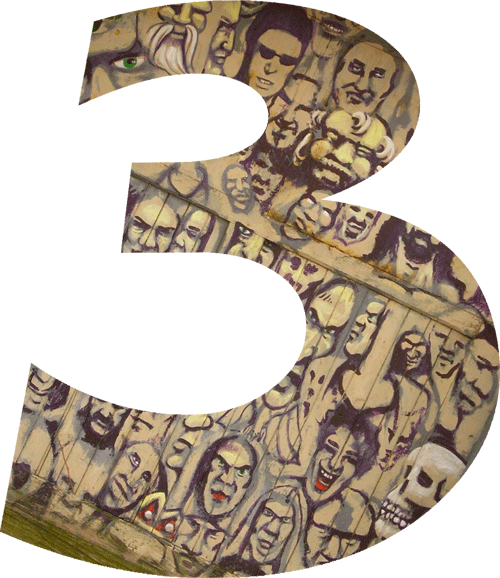 MUSIC, LANGUAGE, AND THE BRAIN
MUSIC, LANGUAGE, AND THE BRAIN
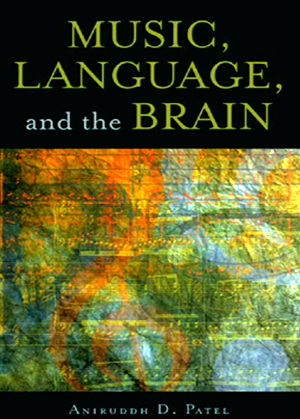 As if to drive a stake through the heart of Levitin and Pinker’s debate,Music, Language, and the Brain by Aniruddh Patel — both a musician himself and one of the greatest living neuroscientists — dissects the unique neuropsychological relationship between two of the most unique hallmarks of our species. Rigorously researched and absorbingly narrated, the book traces the origins of humanity’s understanding of this correlation, dating as far back as the philosophical debates of Ancient Greece, and challenges the scientific community’s longstanding assumption that music and language evolved independently of one another. It’s the kind of read that will leave you at once astounded by how much you’ve learned about its subject and keenly aware of how little you — how little we, as a culture — know about it.
As if to drive a stake through the heart of Levitin and Pinker’s debate,Music, Language, and the Brain by Aniruddh Patel — both a musician himself and one of the greatest living neuroscientists — dissects the unique neuropsychological relationship between two of the most unique hallmarks of our species. Rigorously researched and absorbingly narrated, the book traces the origins of humanity’s understanding of this correlation, dating as far back as the philosophical debates of Ancient Greece, and challenges the scientific community’s longstanding assumption that music and language evolved independently of one another. It’s the kind of read that will leave you at once astounded by how much you’ve learned about its subject and keenly aware of how little you — how little we, as a culture — know about it.
Patel also offers this beautiful definition of what music is:
Sound organized in time, intended for, or perceived as, aesthetic experience.
It’s worth noting that Music, Language, and the Brain makes a fine addition to our list of 5 must-read books about language.
 LISTEN TO THIS
LISTEN TO THIS
 In 2008, New Yorker music critic Alex Ross published The Rest Is Noise: Listening to the Twentieth Century — a remarkable historical and social context for contemporary music, which went on to become one of the most influential music history books ever written. Last fall, Ross released his highly anticipated sequel: Listen to This — an outstanding effort to explain and understand the world through its musical proclivities, from European opera to Chinese classical music to Bjork. Though the book, an anthology of the author’s most acclaimed essays with a deeper focus on classical music, is further removed from neuroscience than the rest on this list, Ross’s astute observations on the emotional and social experience of music make it an indispensable addition nonetheless.
In 2008, New Yorker music critic Alex Ross published The Rest Is Noise: Listening to the Twentieth Century — a remarkable historical and social context for contemporary music, which went on to become one of the most influential music history books ever written. Last fall, Ross released his highly anticipated sequel: Listen to This — an outstanding effort to explain and understand the world through its musical proclivities, from European opera to Chinese classical music to Bjork. Though the book, an anthology of the author’s most acclaimed essays with a deeper focus on classical music, is further removed from neuroscience than the rest on this list, Ross’s astute observations on the emotional and social experience of music make it an indispensable addition nonetheless.
 MUSIC, THE BRAIN AND ECSTASY
MUSIC, THE BRAIN AND ECSTASY
 If the human voice is the greatest instrument, as the widespread music teacher preaching goes, then the brain is the greatest composer. Every time we perform, compose or merely listen to music, the brain plays high-level Tetris with a range of devices, harmonies and patterns, creating emotional meaning out of the elements of sound and often extracting intense pleasure. In Music, The Brain, And Ecstasy: How Music Captures Our Imagination, composer Robert Jourdain examines music’s unusual emotive power through little-known facts and physiological phenomena and historical anecdotes. Perhaps most fascinatingly, he pins down the origin of pleasure in music as a consequence of a series of tonal deviations that create a conflict in the brain, resolved with a return to the tonal center, which gives us a sensation of bliss. This sequence of conflict and resolution, he explains, can come from the four key elements of music: rhythm, melody. phrase, and harmony. “Ecstasy” is the result of a resolution that comes once a conflict has reached the limit of the listener’s comprehension ability in tonal space-time.
If the human voice is the greatest instrument, as the widespread music teacher preaching goes, then the brain is the greatest composer. Every time we perform, compose or merely listen to music, the brain plays high-level Tetris with a range of devices, harmonies and patterns, creating emotional meaning out of the elements of sound and often extracting intense pleasure. In Music, The Brain, And Ecstasy: How Music Captures Our Imagination, composer Robert Jourdain examines music’s unusual emotive power through little-known facts and physiological phenomena and historical anecdotes. Perhaps most fascinatingly, he pins down the origin of pleasure in music as a consequence of a series of tonal deviations that create a conflict in the brain, resolved with a return to the tonal center, which gives us a sensation of bliss. This sequence of conflict and resolution, he explains, can come from the four key elements of music: rhythm, melody. phrase, and harmony. “Ecstasy” is the result of a resolution that comes once a conflict has reached the limit of the listener’s comprehension ability in tonal space-time.
 THE TAO OF MUSIC
THE TAO OF MUSIC
 Traditional self-help books are the pesky cold sore swapped between the lips of legitimate literature and serious psychology. And then there are the books that actually help the self in smart, non-pedantic ways involving no worksheets or mirror nodding. That’s exactly what John Ortiz does in The Tao of Music: Sound Psychology, blending the extraordinary power of music with the principles of Taoist philosophy to deliver an unusual yet captivating proposition: You can enlist your music library in improving your performance and state of mind across everyday challenges like keeping anger at bay, breaking the spell of procrastination, learning to be fully present with romantic relationships, and mastering the art of true relaxation. Through cognitive-behavioral exercises, meditative techniques and melodic visualizations, Ortiz offers a powerful music-driven toolkit for navigating life’s obstacles, and even curates specific “musical menus” of songs and melodies that target specific emotional states and psychological dispositions.
Traditional self-help books are the pesky cold sore swapped between the lips of legitimate literature and serious psychology. And then there are the books that actually help the self in smart, non-pedantic ways involving no worksheets or mirror nodding. That’s exactly what John Ortiz does in The Tao of Music: Sound Psychology, blending the extraordinary power of music with the principles of Taoist philosophy to deliver an unusual yet captivating proposition: You can enlist your music library in improving your performance and state of mind across everyday challenges like keeping anger at bay, breaking the spell of procrastination, learning to be fully present with romantic relationships, and mastering the art of true relaxation. Through cognitive-behavioral exercises, meditative techniques and melodic visualizations, Ortiz offers a powerful music-driven toolkit for navigating life’s obstacles, and even curates specific “musical menus” of songs and melodies that target specific emotional states and psychological dispositions.
 MUSIC AND THE MIND
MUSIC AND THE MIND
 Nearly two decades after its original publication, Anthony Storr’s Music and the Mind remains an essential and timeless prism for looking at one of humanity’s greatest treasures. From the biological basis of cognition to a thoughtful analysis of the views held by history’s greatest philosophers to the evolution of the Western tonal system, Storr addresses some of the most fundamental questions about music, like why a minor scale always sounds sad and a major scale happy, and offers an evidence-backed yet comfortingly human grand theory for the very purpose of music: Peace, resolution and serenity of spirit.
Nearly two decades after its original publication, Anthony Storr’s Music and the Mind remains an essential and timeless prism for looking at one of humanity’s greatest treasures. From the biological basis of cognition to a thoughtful analysis of the views held by history’s greatest philosophers to the evolution of the Western tonal system, Storr addresses some of the most fundamental questions about music, like why a minor scale always sounds sad and a major scale happy, and offers an evidence-backed yet comfortingly human grand theory for the very purpose of music: Peace, resolution and serenity of spirit.
No comments:
Post a Comment